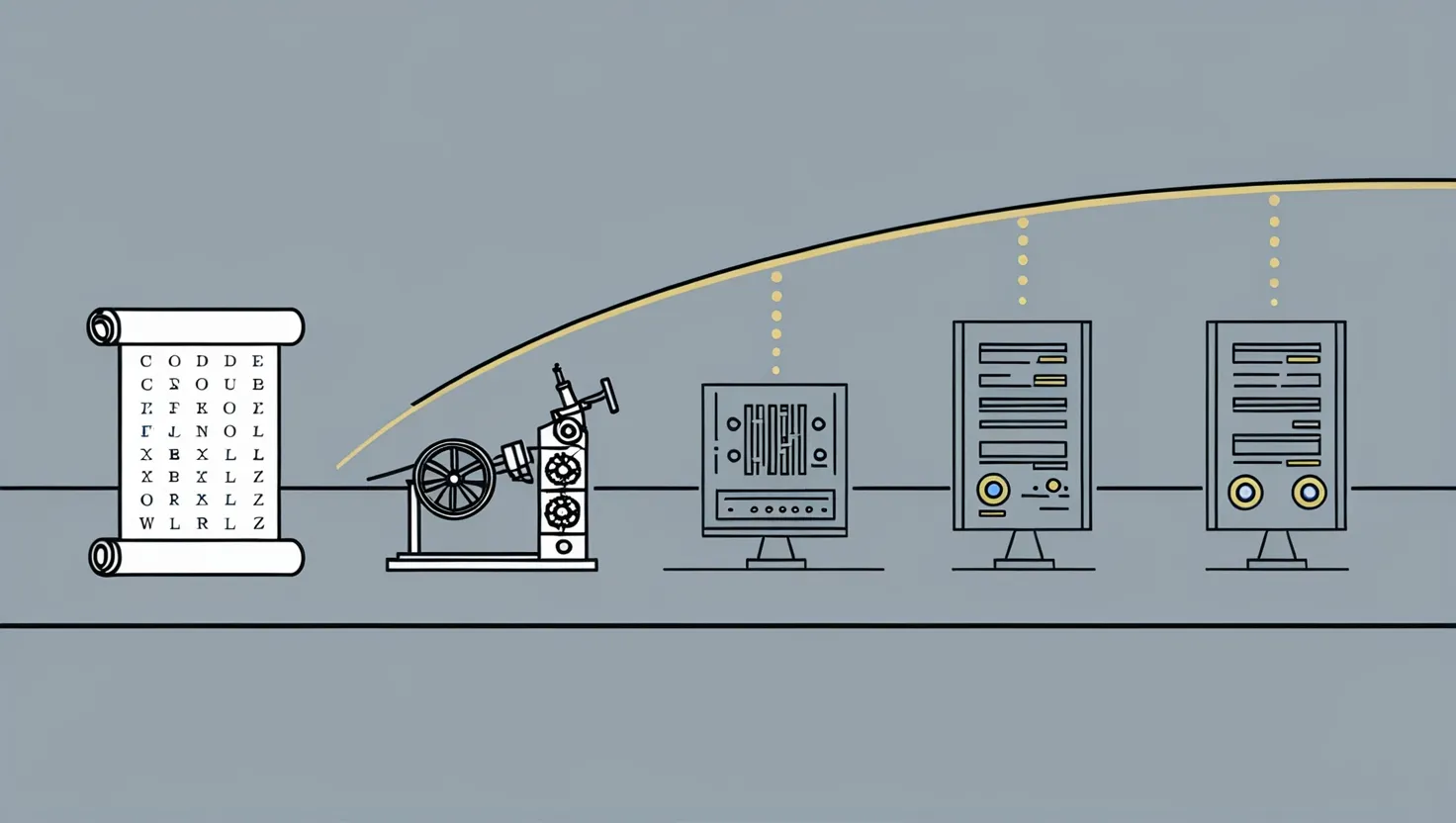Quantum Algorithms: The Game-Changers in Modern Computing
Imagine a world where complex problems that would take centuries to solve can be cracked in minutes. That’s the promise of quantum computing, and at its heart are quantum algorithms - the secret sauce that makes this computational magic possible.
Quantum algorithms aren’t your average set of instructions. They’re like the cool kids of the algorithm world, tapping into the weird and wonderful properties of quantum mechanics to perform mind-bending calculations. It’s like they’ve found a cheat code for reality itself.
Take Shor’s algorithm, for instance. This bad boy can factor large numbers faster than you can say “cryptography.” Why’s that a big deal? Well, our current encryption methods rely on the fact that it’s super hard to factor big numbers. Shor’s algorithm basically says, “Hold my beer,” and gets it done in record time. It’s both awesome and terrifying, depending on which side of the encryption fence you’re on.
But here’s the kicker - this isn’t just about cracking codes. Quantum algorithms are set to revolutionize pretty much every industry you can think of. In finance, they’re like having a crystal ball that can predict market trends and optimize portfolios. In medicine, they’re the ultimate lab partners, simulating molecular behavior to speed up drug discovery.
Now, let’s talk about Grover’s algorithm. If Shor’s algorithm is the code-breaker, Grover’s is the ultimate finder. Imagine trying to find a needle in a haystack. A classical computer would check each piece of hay one by one. Grover’s algorithm? It’s like it has a quantum metal detector, finding the needle in way fewer attempts. This isn’t just cool party trick material - it has serious implications for things like database searching and machine learning.
But here’s the thing - with great power comes great responsibility, and quantum algorithms are no exception. They’re so powerful that they’re threatening to break our current encryption methods. It’s like we’ve been using simple padlocks, and suddenly someone’s invented a universal key. That’s why there’s a mad scramble to develop what’s called Post-Quantum Cryptography (PQC).
PQC is like trying to build a quantum-proof safe. It’s not easy, and it comes with its own set of challenges. For one, these new encryption methods often need longer keys and more complex computations. It’s like upgrading from a simple password to a 50-character string of random letters, numbers, and symbols. Sure, it’s more secure, but it’s also a pain to deal with.
This transition to PQC isn’t just a matter of flipping a switch. It requires extensive testing and careful implementation. Companies are developing cloud-based platforms to test these new algorithms, making sure they’re up to snuff in terms of security and performance. It’s like putting your new lock through a gauntlet of master thieves before trusting it with your valuables.
The impact of quantum algorithms goes beyond just data security, though. They’re set to revolutionize fields like chemistry and materials science. There’s an algorithm called Quantum Phase Estimation (QPE) that can simulate complex chemical reactions. It’s like having a crystal ball that can peer into the quantum realm of molecules. This could lead to breakthroughs in developing new materials or creating more efficient drugs.
And let’s not forget about optimization problems. There’s an algorithm called QAOA (Quantum Approximate Optimization Algorithm) that’s like the ultimate problem solver. It can tackle complex optimization issues that would give classical computers a headache. Think about optimizing traffic flow in a busy city or finding the most efficient way to allocate resources in a large company. QAOA could be a game-changer in these scenarios.
The potential of quantum algorithms is so immense that governments are taking notice. The U.S. government, for instance, has mandated a shift to PQC for its systems. It’s like they’re preparing for a quantum arms race, and they don’t want to be caught off guard.
But here’s the thing - we’re still in the early days of quantum computing. It’s like we’ve invented the computer, but we’re still figuring out all the amazing things we can do with it. As quantum hardware improves, we’re likely to see even more innovative algorithms emerge. Who knows? The next big quantum algorithm could revolutionize artificial intelligence, solve complex climate models, or even help us understand the fundamental nature of the universe.
The rise of quantum algorithms is forcing us to rethink our approach to computation. It’s not just about raw processing power anymore. It’s about finding clever, quantum-inspired ways to solve problems that we once thought were unsolvable. It’s like we’ve discovered a new set of laws of physics, and we’re just starting to figure out how to use them.
As we stand on the brink of this quantum revolution, it’s clear that the future of computation is going to be wildly different from what we’re used to. Quantum algorithms are set to unlock new possibilities in every field, from finance to pharmaceuticals, from cryptography to climate science.
But with this incredible potential comes significant challenges. We need to ensure that our systems are ready for the quantum era. This means not only developing new, quantum-resistant encryption methods but also preparing our infrastructure to handle these more complex algorithms. It’s like upgrading from a bicycle to a rocket ship - the potential is enormous, but you need to make sure you have the right launch pad.
The journey into the quantum realm is just beginning, and quantum algorithms are our guide. They’re the key to unlocking the true potential of quantum computers, turning theoretical possibilities into practical realities. As we continue to develop and refine these algorithms, we’re not just changing the way we compute - we’re changing the way we understand and interact with the world around us.
So, the next time you hear about a breakthrough in quantum computing, remember - it’s not just about the hardware. It’s about the clever quantum algorithms that are pushing the boundaries of what’s possible. They’re the unsung heroes of the quantum revolution, quietly reshaping our world one qubit at a time.
In the end, quantum algorithms are more than just a set of instructions for a quantum computer. They’re a new way of thinking, a new approach to problem-solving that could unlock solutions to some of humanity’s greatest challenges. From climate change to disease, from space exploration to artificial intelligence, quantum algorithms have the potential to accelerate our progress in ways we can barely imagine.
As we stand on the threshold of this new quantum era, one thing is clear - the future is quantum, and quantum algorithms are leading the way. Buckle up, folks. It’s going to be one wild, quantum ride.






